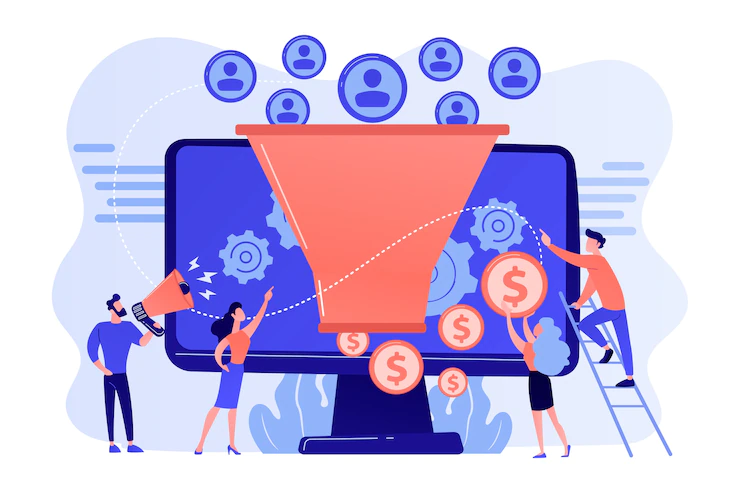Navigating the world of sales and marketing can feel like walking through a maze without a map. One essential tool to help guide you is the sales funnel. Understanding what a sales funnel is and why it’s important can transform how you approach your business strategy. Here’s everything small business owners and marketing professionals need to know.
1. What is a Sales Funnel?
A sales funnel is a visual representation of the customer journey from the first interaction with your brand to the final purchase. It typically includes the following stages:
- Awareness: Potential customers become aware of your product or service.
- Interest: They show interest by seeking more information.
- Consideration: They consider your product/service as a potential solution.
- Intent: They demonstrate a clear intention to purchase.
- Purchase: They complete the transaction.
- Loyalty (optional): Post-purchase engagement that turns customers into repeat buyers.
2. The Importance of Funnel Marketing
Guides Strategy Development
The sales funnel provides an actionable framework for creating targeted strategies at each stage. This ensures your marketing efforts are aligned with your customers’ needs and behaviors, making your campaigns more effective.
Improves Customer Experience
By understanding where a customer is in the funnel, you can tailor your interactions to provide value at every touchpoint. This personalized approach boosts customer satisfaction and loyalty.
Enhances Conversion Rates
Funnel marketing helps identify potential bottlenecks in the customer journey. By addressing these issues, you can improve conversion rates and ultimately increase revenue.
Provides Measurable Insights
Each stage of the sales funnel can be tracked and analyzed, offering valuable insights into your marketing performance. This data-driven approach allows for continuous optimization and better decision-making.
3. Who Needs a Sales Funnel?
Small Business Owners
For small business owners, a sales funnel is crucial for optimizing limited resources. It helps prioritize efforts on high-impact areas, ensuring maximum ROI on marketing and sales activities.
Marketing Professionals
Marketing professionals can use sales funnels to craft highly targeted campaigns. Understanding the different stages allows for the creation of content that resonates with customers at each phase, enhancing engagement and driving conversions.
4. Steps to Create an Effective Sales Funnel
Identify Your Target Audience
Understanding who your customers are and what they need at each stage of the funnel is the first step to creating a successful sales funnel.
Create Relevant Content
Develop content tailored to each stage of the funnel. From blog posts and social media updates to webinars and case studies, ensure your content addresses the specific needs and pain points of your audience.
Implement Lead Generation Tactics
Use strategies like email marketing, social media advertising, and SEO to attract prospects and move them through the funnel. Capture leads with compelling call-to-actions and lead magnets.
Nurture Leads
Engage with leads through personalized emails, targeted offers, and valuable content. The goal is to build trust and guide them towards a purchase decision.
Analyze and Optimize
Regularly review your funnel’s performance using analytics tools. Identify areas for improvement and adjust your strategies accordingly to maximize conversions and minimize drop-offs.
5. Conclusion
A well-designed sales funnel is a game-changer for both small business owners and marketing professionals. It not only streamlines the customer journey but also provides actionable insights to boost your marketing efforts.



